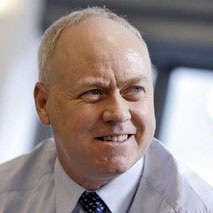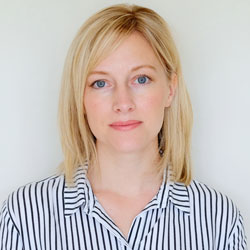The last 18 months have left many facing job losses, closing their businesses and even losing their homes. Briefings by the University's Centre on Household Assets and Savings Management (CHASM) share our research on how changes to financial policy could support those who have been hit hardest.
Rebuilding how our finances work
The pandemic has highlighted much in our economy that isn't working as well as it could for many people. What changes could we make to our systems to help tackle economic insecurity and make people more resilient to financial shocks?
For 10 years, CHASM has been carrying out research on financial wellbeing and resilience. When the financial impact of the pandemic began to emerge, CHASM rapidly investigated the key issues, including how we can support the most financially vulnerable and provide fairer pay for key workers.
COVID-19 has brought about policy changes and operational responses that most would have thought impossible a year ago, from furloughing employees to mass mortgage holidays.
CHASM's research is now exploring how to create a better long-term legacy of this period in terms of financial wellbeing – not just a return to what we had before.
'Why financial wellbeing matters to me'
 The CHASM team are so grateful to Birmingham graduate Andrew Fisher (BSc Economics, 1982), who has financially supported the Centre for over 10 years. He says: 'CHASM's work has never been more important, given the impact of the pandemic on levels of economic insecurity, wellbeing, poverty and debt. I wanted to put something back into society through Birmingham because universities make such a significant contribution to community, wellbeing, social mobility and health.'
The CHASM team are so grateful to Birmingham graduate Andrew Fisher (BSc Economics, 1982), who has financially supported the Centre for over 10 years. He says: 'CHASM's work has never been more important, given the impact of the pandemic on levels of economic insecurity, wellbeing, poverty and debt. I wanted to put something back into society through Birmingham because universities make such a significant contribution to community, wellbeing, social mobility and health.'
What CHASM has delivered to date
- Increasing financial inclusion: Our Financial Inclusion Monitoring Reports led to the appointment of government ministers for financial inclusion
- Shaping policy on savings for low-income households: Our work has led to better access to savings opportunities for those on lower incomes
Six key ideas governments need to think about for a post-pandemic world
CHASM’s Build Back Better Briefings highlight research from Birmingham and around the world.
- Cash vs contactless: Social distancing measures make life more difficult for those who rely on cash to pay for goods and services. How can governments stop digital exclusion leading to further financial exclusion?
- The home as a workplace: If working from home becomes a long-term trend, what might this mean for the decisions we make about where we want to live and what space we need? How could this affect the housing market?
- Debt and poverty: The COVID-19 crisis looks likely to result in a significant rise in poverty and household debt in the UK. Is it time for long-term fundamental changes, such as a universal basic income?
- Charities and COVID-19: Uncertainty is likely to affect what people give to charity, how much to give, which causes to give to, when to give and how to give. How might charities and those who rely on them be affected by the crisis?
- Social security: COVID-19 meant many families needed support urgently, when jobs disappeared overnight. With a five-week wait for a first payment, is our benefits system fit for a pandemic?
- The cost of getting sick: Statutory sick pay has become a key issue in whether those who need to self-isolate can afford to stay at home. Do we need to restructure sick pay for the benefit of everyone?
From PhD student to Centre Director
 Dr Louise Overton, Director of CHASM and Lecturer in Social Policy, studied her PhD at Birmingham after her MA in Social Policy. She shares how having the right support at PhD level can enable someone to go on to produce world-class research.
Dr Louise Overton, Director of CHASM and Lecturer in Social Policy, studied her PhD at Birmingham after her MA in Social Policy. She shares how having the right support at PhD level can enable someone to go on to produce world-class research.
'As a PhD student, I was lucky to receive funding from the Economic and Social Research Council and Age UK to investigate equity release in retirement. A CASE studentship to support collaboration with partners helped me speak to people in financial services, charities and elsewhere, increasing the reach and scope of my research.
'My PhD research findings were covered in The Guardian, Daily Telegraph, Daily Express, BBC online and more, sharing them with those who need the information. I am now building on this within CHASM, to include research on pension decision-making and paying for care.
'CHASM means I can bring people's financial needs to the attention of policy makers and key stakeholders, and collaborate with colleagues analysing different systems internationally. I'm so glad to be able to support the next generation of PhD students at Birmingham, helping them undertake research that will level the playing field and make society fairer.'